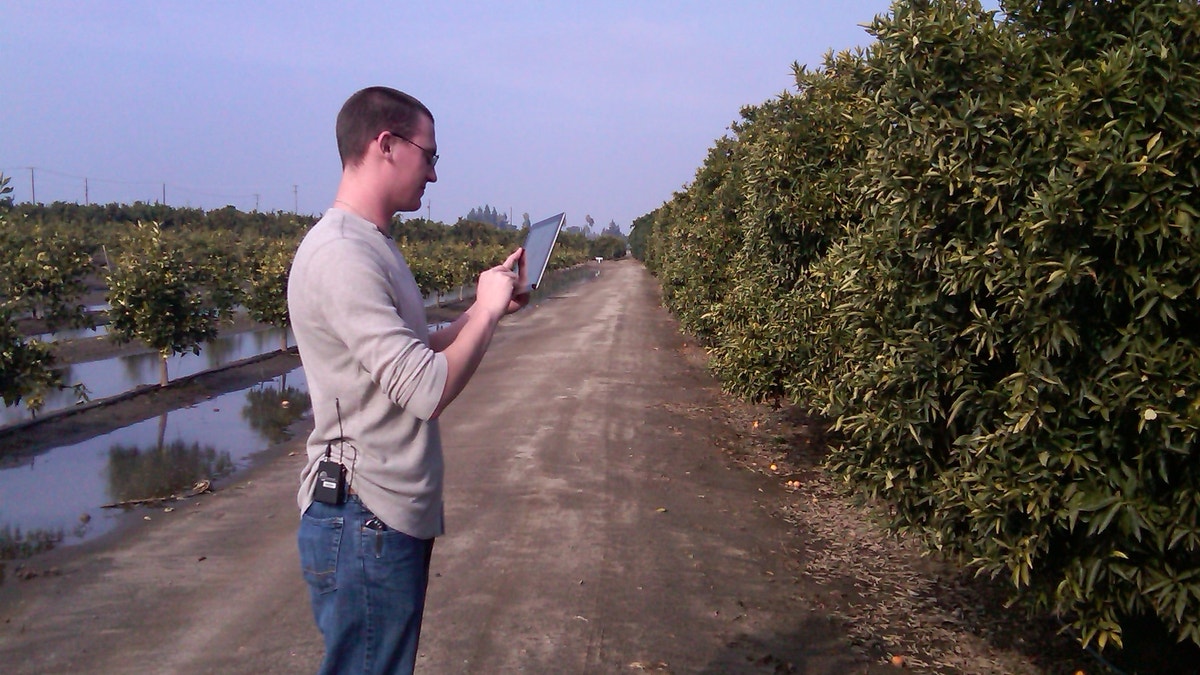
SFC Jarrod Mattison with the US Army Reserve, using an app to learn more about the crops he'll encounter in Afghanistan.
Before they're deployed to help stabilize Afghanistan, hundreds of U.S. Army troops, Marines, and other government personnel head to Fresno, Calif., for a crash course on that war-torn country's most vital industry: agriculture.
The program is called ADAPT: The Agricultural Development for the Afghanistan Pre-deployment Training. It's funded by the U.S. Department of Agriculture, and home base is Fresno State University in the heart of California's fertile Central Valley.
The program's leaders say the hands-on training, and literally getting to the root of things, is critical to winning the war on terror.
"Afghanistan is one of the poorest countries on our Earth," Paul Sommers, ADAPT's project director said. "The food insecurity situation is chronic there. If we can get them a little bit more secure with their food supply, get them through that hungry season just a little bit better, that means they're on the road to stability, and growth."
Fresno provides the same climate and many of the same fruits, nuts and vegetables, these civil affairs specialists will see when they get to Afghanistan. In the span of a week, they learn the basics -- from planting and soil, to irrigation. These are among the key agricultural issues that face 80 percent of all Afghan citizens.
The troops say that while combat has its place, lasting economic security starts with the shovel.
"If they've gained in their farm production, [the local residents] are not as desperate to join into other operations that are against the United States," Capt. Harold Price, a civil affairs specialist with the US Army Reserve, said.
These units also will be able to link extremely poor farmers with the latest technology, through a special app. that works on smartphones and tablets, called "e-Afghan Ag." The online resource connects to agriculture experts in the U.S. and in Afghanistan, who can provide information, feedback, and possible solutions.
Jarrod Mattison, a sergeant with Army Reserves, says e Afghan Ag can help him diagnose a tree, or even a chicken, that doesn't look quite right.
"And if it's not in the application," Mattison said, "there's this awesome reach-back function where I can take a picture of that chicken, and send it back to these guys at the USDA, these guys at Fresno State. In 12 to 24 hours, they get me an exact answer as to what's wrong with this chicken, and what I can do to help."
This is all part of America's evolving mission in Afghanistan: helping a transitional government secure agricultural sustainability, and economic security, through outreach, technology and seeds of hope.

